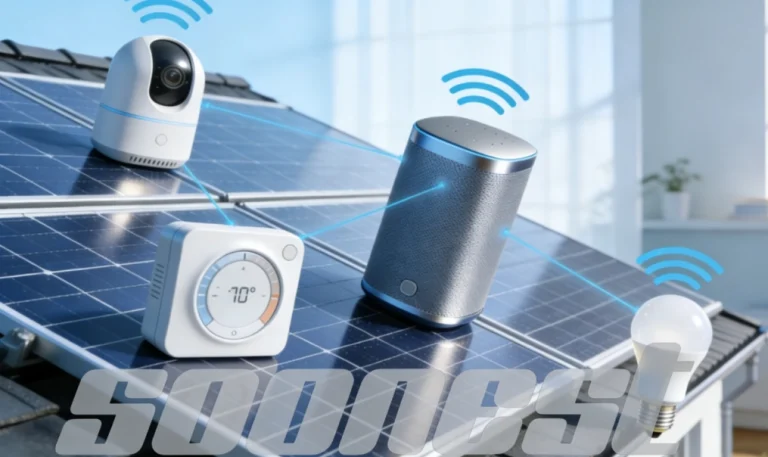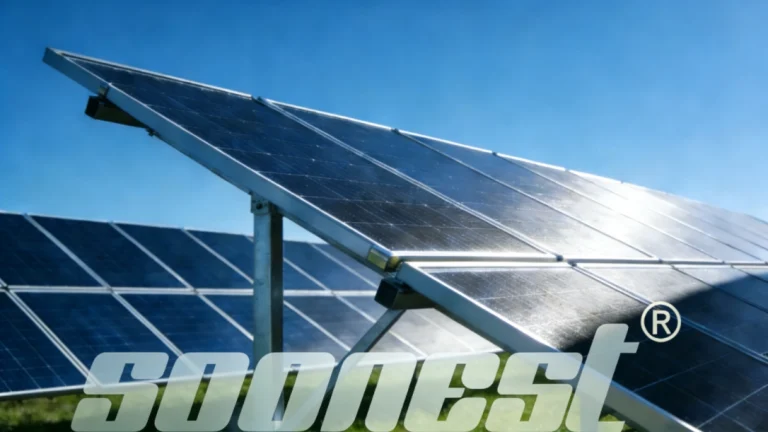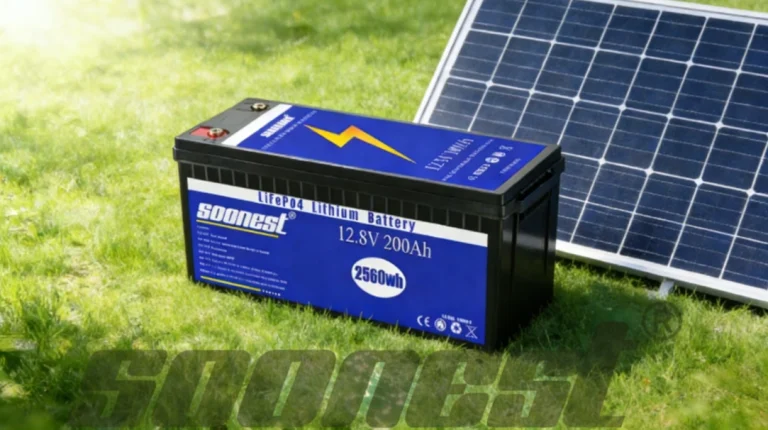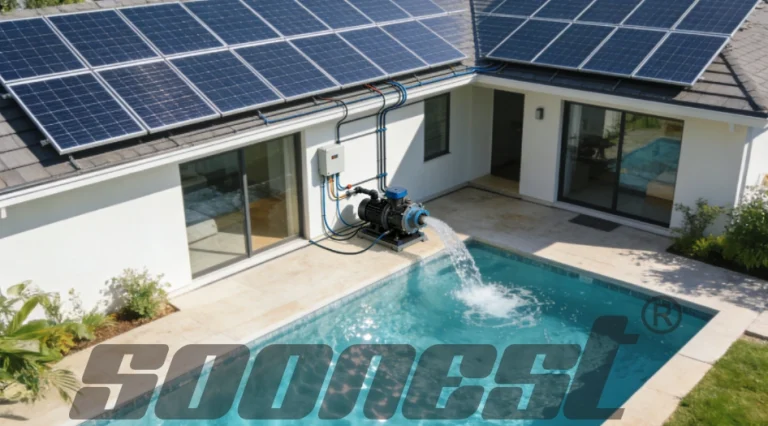Да, сегодняшние солнечные панели могут абсолютно надежно питать холодильник. Энергоэффективные холодильники DC используют всего 100-800 Вт в день. Правильный размер для часов солнечного света в вашем районе и добавление батарей на ночь являются ключевыми. Такие факторы, как теплая погода, сильная изоляция и передовые компрессоры, повышают производительность. Скорее всегоAC/DC солнечный холодильник & Солнечный морозильник пропускает расточительные преобразования энергии. Они работают плавно вне сети. С помощью контроллеров MPPT и литиевых батарей вы получаете истинную свободу энергии, снижение затрат и экологически чистое охлаждение в любом месте.
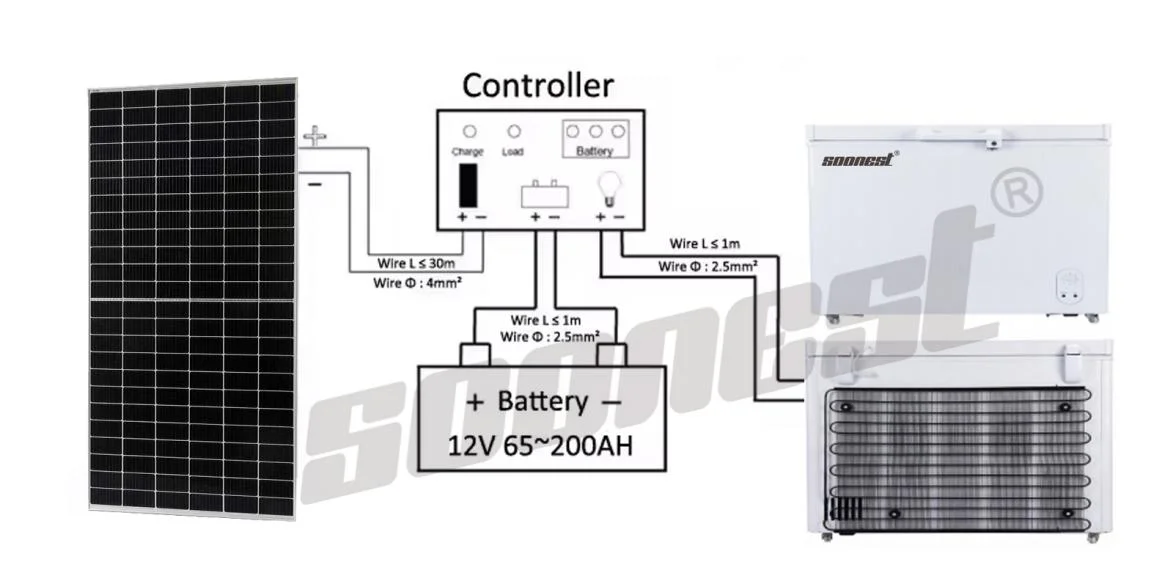
Может ли солнечная панель действительно питать холодильник?
Какова ежедневная потребность в электроэнергии типичного холодильника?
Чтобы узнать, может ли солнечная панель запускать холодильник, вы должны сначала выяснить его ежедневное потребление энергии. Большинству современных домашних холодильников требуется от 100 до 800 ватт-часов (Вт-ч) в день. Это зависит от их размера, качества изоляции и того, как часто они используются. Небольшие, эффективные модели постоянного тока часто используют меньше энергии. Большие или старые холодильники могут потреблять гораздо больше.
Холодильники не работают постоянно. Они работают в циклах. Компрессор включается и выключается, чтобы сохранить внутреннее прохладность. Например, холодильник мощностью 100 Вт может работать всего 6-8 часов в день. Это приводит к фактическому ежедневному использованию около 600-800 Втч.
Какие факторы влияют на энергопотребление холодильника?
Почему внешняя температура и изоляция имеют значение?
Окружающая среда вокруг холодильника влияет на то, насколько сильно он работает. В жарких местах или плохо воздушных пространствах компрессор работает больше. Это потому, что он борется, чтобы сохранить внутренний холод. Плохая изоляция позволяет теплу быстро проникать. Это позволяет компрессору работать дольше.
Высококачественные солнечные холодильники используют высочайшую изоляцию. Это уменьшает тепло, попадающее в холодильник. Это снижает потребление энергии. В таких местах, как Нигерия, энергетические правила стимулируют эффективное оборудование. Это сокращает потребление электроэнергии для высокоэнергетических устройств, таких как холодильники.
Как компрессоры и рабочие циклы повышают эффективность?
Технология компрессора является большой проблемой для экономии энергии. Современные компрессоры постоянного тока тихи и используют меньше энергии, чем старые компрессоры переменного тока. Системы постоянного тока обладают более высоким коэффициентом энергоэффективности (EER). Это означает, что они используют меньше электроэнергии для той же мощности охлаждения. То же самое работает и для холодильников.
Умные системы управления оптимизируют работу компрессора. Они сокращают потери энергии, когда холодильник выключен. Это делает холодильники с постоянным питанием идеальными для солнечных установок. Ежедневно они потребляют гораздо меньше энергии.
Как улучшилась технология солнечных панелей для приборов?
Какие улучшения эффективности сделали солнечные панели?
Солнечные панели сегодня намного лучше, чем старые. В настоящее время монокристаллические панели часто превышают эффективность 20%. Это означает, что они производят больше энергии на квадратный фут пространства. Это отлично подходит для работы холодильников, которые нуждаются в стабильной энергии.
Новые покрытия уменьшают отражение света. Улучшенные конструкции лучше справляются с теплом. Эти изменения помогают панелям хорошо работать даже в облачные дни или в частичной тени.
Как сочетать солнечную энергию с потребностями холодильника?
Почему пиковые солнечные часы важны для измерения размеров?
Солнечные батареи не производят одну и ту же энергию весь день. Лучше всего работают около полудня. Выпуск падает утром и вечером. Чтобы измерить солнечную систему для холодильника, нужно знать «часы пика солнечного света». Это часы, когда солнечный свет дает около 1 кВт/м².
Например, если ваш холодильник использует 600 Вт в день, а ваша область получает 5 пиковых солнечных часов, вам нужна по крайней мере 150 Вт панель. Добавьте дополнительные потери энергии, чтобы быть безопасными.
Следует ли использовать энергию в режиме реального времени или батареи?
Солнечные панели производят электричество только тогда, когда светит солнце. Холодильники нуждаются в электроэнергии весь день и ночь. Это делает батареи необходимыми. Они хранят энергию в облачные дни или ночью.
Литиевые батареи отличны. Они хранят больше энергии и длится дольше, чем старые свинцово-кислотные. Выберите размер батареи, который соответствует повседневным потребностям вашего холодильника. Это обеспечивает стабильную мощность независимо от погоды.
Почему солнечные холодильники AC / DC отличны для использования вне сети?
Что делает AC / DC холодильник & Специальные морозильные системы?
Гибридные холодильники AC/DC построены для жизни вне сети. Они работают с низкого напряжения постоянного тока (12В/24В) и стандартного переменного тока (220В). Это позволяет им переключаться между солнечной энергией и резервными источниками, такими как сеть или генератор.
Инвертор помогает переключаться между режимами. Он поддерживает «сначала используйте солнечную энергию, отправляйте дополнительную в сеть» или «экономите электроэнергию вне сети». Эта гибкость делает их идеальными для различных настроек.
Как эти системы блестят в отдаленных районах?
Почему прямое питание постоянного тока более эффективно?
Большинству традиционных холодильников нужен инвертор для перемены постоянного тока (от солнечных или батарей) на переменное ток. Это преобразование тратит 5%-15% энергии. Гибридные холодильники переменного тока / переменного тока работают непосредственно на переменном токе. Это пропускает инвертор и экономит энергию.
Умные устройства управления дают приоритет солнечной энергии перед электросетевой или генераторной энергией. Это снижает зависимость от ископаемого топлива. Это максимизирует использование солнца для повышения эффективности.
Как прямая интеграция повышает надежность?
Работа на постоянном токе уменьшает количество частей, которые могут сломаться. Вам не нужны дополнительные инверторы или регуляторы. Меньше частей означает меньше проблем. Это жизненно важно для отдаленных мест, таких как сельские клиники, мобильные продовольственные блоки или организации по оказанию помощи в случае стихийных бедствий.
Как эти технологии используются в продуктах Soonest?
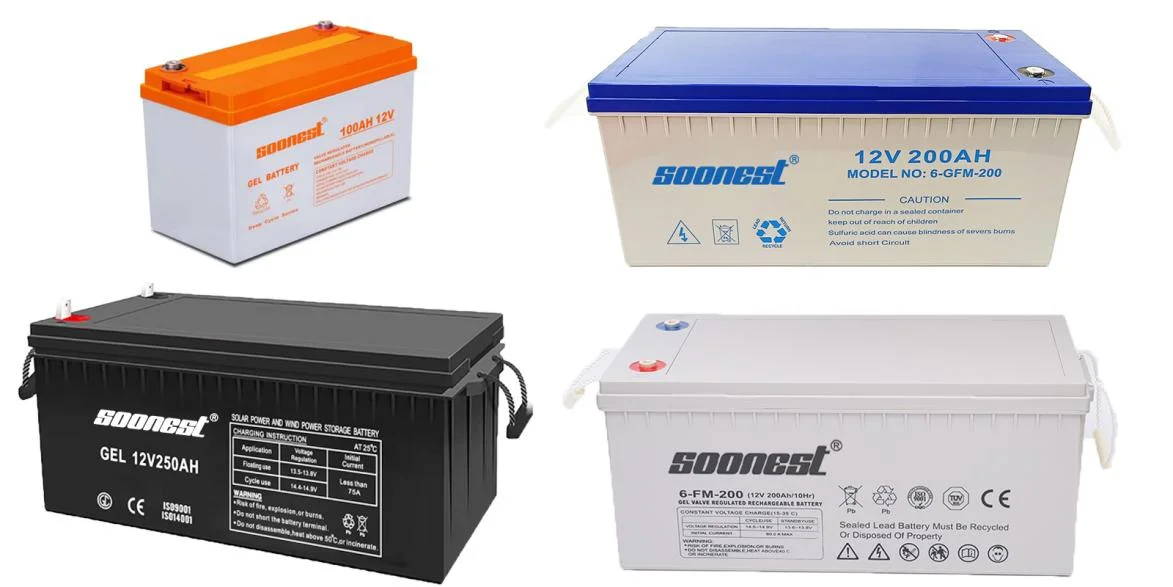
Проверьте в ближайшее время Солнечный холодильник AC/DC Солнечный морозильник – Солнечная энергия 12V / 24V до 220V на SoonestPower.com. Они показывают, как умный дизайн обеспечивает солнечное охлаждение.
Какие особенности делают эти холодильники такими эффективными?
Эти блоки используют высокоэффективные компрессоры постоянного тока. Они уменьшают пики мощности запуска и стабильное потребление энергии. Усовершенствованная изоляция сохраняет холод даже во время падений электроэнергии. Это делает их надежными в тяжелых условиях.
Они работают с широким диапазоном напряжений. Это означает, что они вписываются в старые свинцово-кислотные или современные литиевые аккумуляторные системы без дополнительной установки.
Могут ли они хорошо работать с современными солнечными системами?
Да, безусловно. Гибридные холодильники Soonest легко сочетаются с обычными солнечными установками. Они работают с контроллерами MPPT, батареями глубокого цикла (литиевыми или AGM) и гибкими панельными массивами. Они готовы к plug-and-play.
Умные схемы адаптируются к изменению уровня солнечного света. Они отдают приоритет солнечной энергии, но переходят на храненную или резервную энергию, когда это необходимо. Это позволяет им работать плавно.
О чем нужно думать при настройке системы?
Как выбрать размер солнечных батарей и батарей?
Во-первых, рассчитайте ежедневное потребление энергии холодильника (например, 600 Вт-ч). Добавьте 20% на потери при использовании инвертора. Поделите на пиковые солнечные часы вашего района, чтобы найти необходимый размер панели. Для батарей умножите ежедневное использование на дни, которые вы хотите без солнца (например, два дня = 1200 Втч). Выберите батарею в зависимости от ее полезной мощности. Например, свинцово-кислотные батареи используют только около 50% своей мощности.
Почему контроллеры MPPT являются ключом к стабильности?
Контроллеры MPPT регулируются, чтобы получить максимальную мощность от панелей. Они могут повысить эффективность до 30% по сравнению со старыми контроллерами PWM. Это обеспечивает стабильное питание для холодильников, которые нуждаются в постоянном напряжении.
Как сохранить его в облачные дни или ночью?
Батареи справляются с этим пробелом. Размерите их, чтобы удовлетворить потребности вашего холодильника и потребности в запускной энергии. Гибридные холодильники помогают, используя схемы мягкого запуска. Они снижают мощность, необходимую для запуска компрессора. Это позволяет использовать меньшие батареи без потери надежности.
Каковы долгосрочные преимущества солнечного охлаждения как в ближайшее время?
Можете ли вы быть полностью энергетически независимыми от сети?
Да, с достаточным количеством панелей и аккумуляторов вы можете полностью выйти из сети. Нет необходимости в дизельных генераторах или колебанном питании сети. Это идеально подходит для отдаленных районов с небольшой инфраструктурой.
Например, автомобильный парк сокращает счета за электроэнергию более чем на 30% и выбросы углерода на 15% в год с помощью солнечных микросетей.
Вы сэкономите деньги по сравнению с холодильниками?
Солнечные установки стоят больше заранее. Но они экономят деньги со временем. Вы избегаете затрат на топливо и требуете мало технического обслуживания. Это особенно верно в районах, где дизельное топливо трудно получить или дорого.
Предприятия используют солнечные батареи на крыше для снижения пиковых затрат на электроэнергию. Это помогает управлять высокими расходами на электроэнергию.
Это зеленый вариант охлаждения?
Да, это экологически чисто. Солнечные холодильники используют чистую энергию и эффективную электронику. Они сокращают ископаемое топливо. Это снижает углеродный след и поддерживает глобальные цели устойчивости.
Предлагает ли скоро больше, чем просто продукты?
Скорее всего выходит за рамки продажи оборудования. Они являются лидерами в области возобновляемых источников электроэнергии для использования вне сети в таких местах, как Африка, Юго-Восточная Азия и Латинская Америка. Предлагают экспертные консультации перед покупкой. После покупки они обеспечивают технический поддержка, Помощь по установке и советы по оптимизации системы.
Исследовать Полный ассортимент Soonest на SoonestPower.com для надежных солнечных охлаждающих решений.
Часто задаваемые вопросы
В: Могу ли я запускать холодильник на солнечных батареях без батарей? Ответ: Это возможно только в солнечные часы, если панели производят достаточное количество энергии. Но это непрактично. Холодильники нуждаются в энергии ночью, когда солнечные панели не работают. Батареи необходимы для стабильной работы.
В: Использование солнечной энергии отменит гарантию моего обычного холодильника? A: Использование инвертора для поставки стандартного переменного тока обычно сохраняет гарантию безопасной. Но изменение внутренней проводки холодильника может привести к его отмене. Проверьте политику вашего производителя.
Вопрос: Холодильники с постоянным током или гибридные AC / DC лучше? А: Гибридные модели AC/DC более гибкие. Они работают в разных условиях и остаются эффективными с питанием постоянного тока. Они идеальны, если вы можете перемещать или использовать несколько источников энергии.

